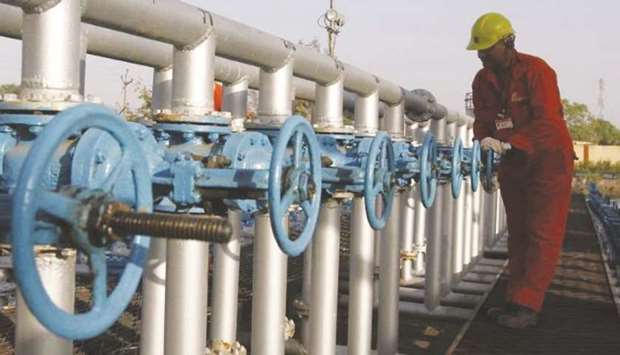Former Prime Minister Shahid Khaqan Abbasi had participated in the groundbreaking ceremonies held to begin construction of the pipeline in Turkmenistan and Afghanistan.
In Pakistan, the work was scheduled to commence in May this year, but the plan could not be pushed ahead as tenure of the Pakistan Muslim League-Nawaz (PML-N) government was going to end on May 31, 2018.
“Now, the new elected administration of PTI will start laying the TAPI gas pipeline in Pakistan,” a senior government official said.
State-run Inter State Gas Systems (ISGS) has the mandate to execute all oil and gas pipeline projects.
ISGS managing director Mobin Saulat said that the pipeline construction had begun in Afghanistan and Turkmenistan. However, work had not yet been undertaken in Pakistan, he said, voicing hope that the incoming government would inaugurate the building of the gas pipeline.
As Russia is planning to lay an offshore pipeline from Iran to India via Pakistan, the countries building the TAPI pipeline have approved an alternative plan to cut the time required for project implementation.
The project was targeted to be completed in 2021, but under the alternative plan, the participating countries would be able to complete it in 2020. The TAPI steering committee comprising ministers of the four countries has approved the alternative plan.
The ISGS MD revealed that the government had proposed a new plan for laying the pipeline in the shortest possible time. Under the plan, pipeline will be laid in the first phase without installing compressors. There will be free flow of gas from Turkmenistan through the pipeline without compressors. The pipeline will be of 56-inch diameter and one-third of gas flow will be possible in this process. Gas flow will start in about one and a half year.
He revealed that the pipeline had been divided into nine lots and successful bidders would be asked to work on different lots in an attempt to complete the project as quickly as possible.
At present, Pakistan is importing liquefied natural gas (LNG) from Qatar and Italy to tackle energy shortages. It is also in talks with different countries to ink more government-to-government LNG supply deals.
The US has given its full backing to the TAPI project that will not only meet energy needs of Afghanistan, Pakistan and India, but will also help ease tensions between the neighbours due to reliance on each other, the ISGS MD said.
Turkmenistan has huge gas reserves and a major chunk of them has gone to Russia that supplies the energy onwards to Europe. Turkmenistan has also been supplying gas to Iran whereas Afghanistan, Pakistan and India will be its new markets.
Turkmenistan will bear 85% of the $10bn pipeline cost while Afghanistan, Pakistan and India will have 5% equity share each. The pipeline cost is in addition to the $15bn capital injection required for developing a relevant gas field. A gas sale and purchase agreement has already been signed in 2012 to establish the pricing mechanism under which gas price at Turkmenistan’s border will be around 20 per cent cheaper than the Brent crude oil rate.

